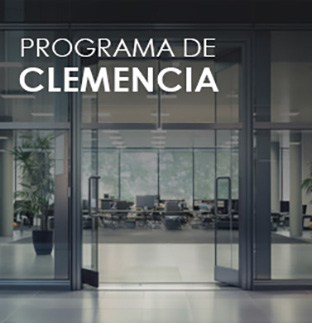Public Consultation on the New Models for Service Delivery and the “Sharing Economy”

One of the functions of the National Commission for Markets and Competition (CNMC), as established in Law 3/2013 of June 4, creating the CNMC, is advocating competition through the issuing of sector studies and reports. In the framework of this function, at its meeting on 15th October 2014 the Council of the CNMC decided to conduct a study on the new models for service delivery facilitated by information technologies and Internet, in particular on the so-called “sharing economy”.
Why is the CNMC conducting this study?
The development of information technologies, mobile devices and new platforms and applications, in sum, the digitization of the economy, have led to new patterns of consumption in recent years. A good example is the development of e-commerce (books, music, traveling, clothing, etc.), which has become commonplace in the daily life of millions of consumers in Spain in just a few years..
This technological breakthrough is having a major impact on the so-called sharing economy (or sharing consumption). This is based on the exchange of idle or underused goods and services, such as empty seats in a car on a trip, apartments that are empty during holidays, domestic tools used just once or twice, etc., in exchange of compensation agreed between the parties. The reduction of household income and of credit available to consumers as a result of the economic crisis, together with the cultural change consisting in that “use” is preferred to "property“, are also key elements in understanding the success of this model. The sharing economy is increasingly present in our everyday lives. The revenue flowing through the sharing economy directly into people's wallets has been estimated in more than $3.5 billion in 2013, representing a 25% increase in just one year.
In parallel to the sharing economy phenomenon, technological development has facilitated the emergence of new platforms that use the advantages of the Internet (search engines, aggregators and comparators, etc.) to offer more attractive services to consumers.
There is no doubt that the increase in the supply and variety of products and services is an opportunity that, from the point of view of competition, enhances consumer welfare. Moreover, the new models provide consumers with more information about products and services, reduce transaction costs and have a lower environmental impact. However, at the same time some questions arise concerning how to adapt the existing regulation to the new scenario, given the effects of the new models on markets. A deep analysis of the sharing economy phenomenon needs to be conducted by competition authorities.
What is the purpose of the study?
The ultimate purpose of the study is to issue a series of recommendations aimed at ensuring efficient regulation of the affected markets, with a view to guaranteeing effective competition between traditional and new entrants in the markets, for the benefit of consumers.
The study will provide an overview of the state of development of the “sharing economy” in Spain, but will focus, in two specific industries in particular, passenger road transport and tourist accommodation, where new models for service delivery have already posed significant challenges for the Regulator:
In the urban and interurban road passenger transport industry, new platforms connecting passengers and drivers have emerged as an alternative to traditional taxi or bus services.
In the tourist accommodation industry, new platforms have introduced additional offers into the market.
How will the study be conducted?
The study will begin with a public consultation to which all stakeholders and interested persons are kindly invited to contribute their ideas and experiences. In order to ensure a proper and transparent consultation process, those interested in participating are kindly requested to send their contributions through the CNMC website (www.cnmc.es).
The consultation will take place in three stages:
- The first stage will assess the theoretical bases underlying traditional regulation of two of the industries where “sharing consumption” is having a large impact: passenger road transport (bus and taxi) and tourist accommodation. The consultation raises some questions about the rationale of current regulation and the problems it may be creating.
- The second stage will focus on the effects on these markets of the new models for service delivery.
- The third stage will seek to analyze the need and proportionality of current regulation, given the new market conditions.
Contributions sent in conformity with the rules of the consultation will be published and taken into account in the study.
Public consultation
STAGE 1. Public interest objectives sought by the regulation
Assessment of the need and proportionality of economic regulation of the two sectors.
Deadline for contributions: 27th November 2014
STAGE 2. Effects on markets and regulation of new models for service delivery
Analysis of the main effects of the new models for service delivery on consumers and the general interest
Deadline for contributions: 13th January 2015
STAGE 3. Regulation under the new market conditions
Analysis of the adequacy of regulation to new market conditions created as a result of the new models. Amendments to regulation that would be necessary to accommodate the new models and operators in a competitive way.
Deadline for contributions: 13th January 2015
View all answers in this page


.jpeg)




